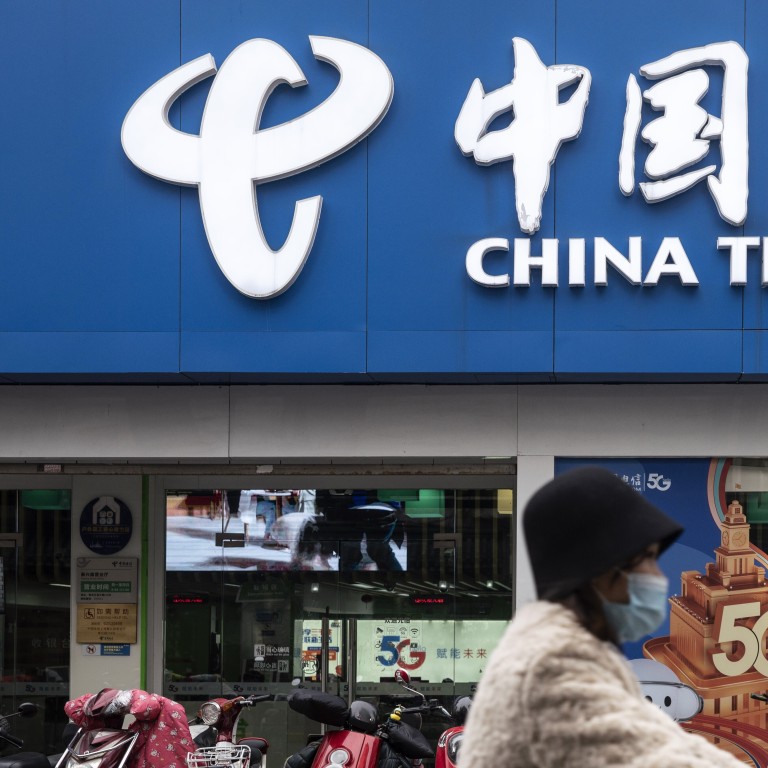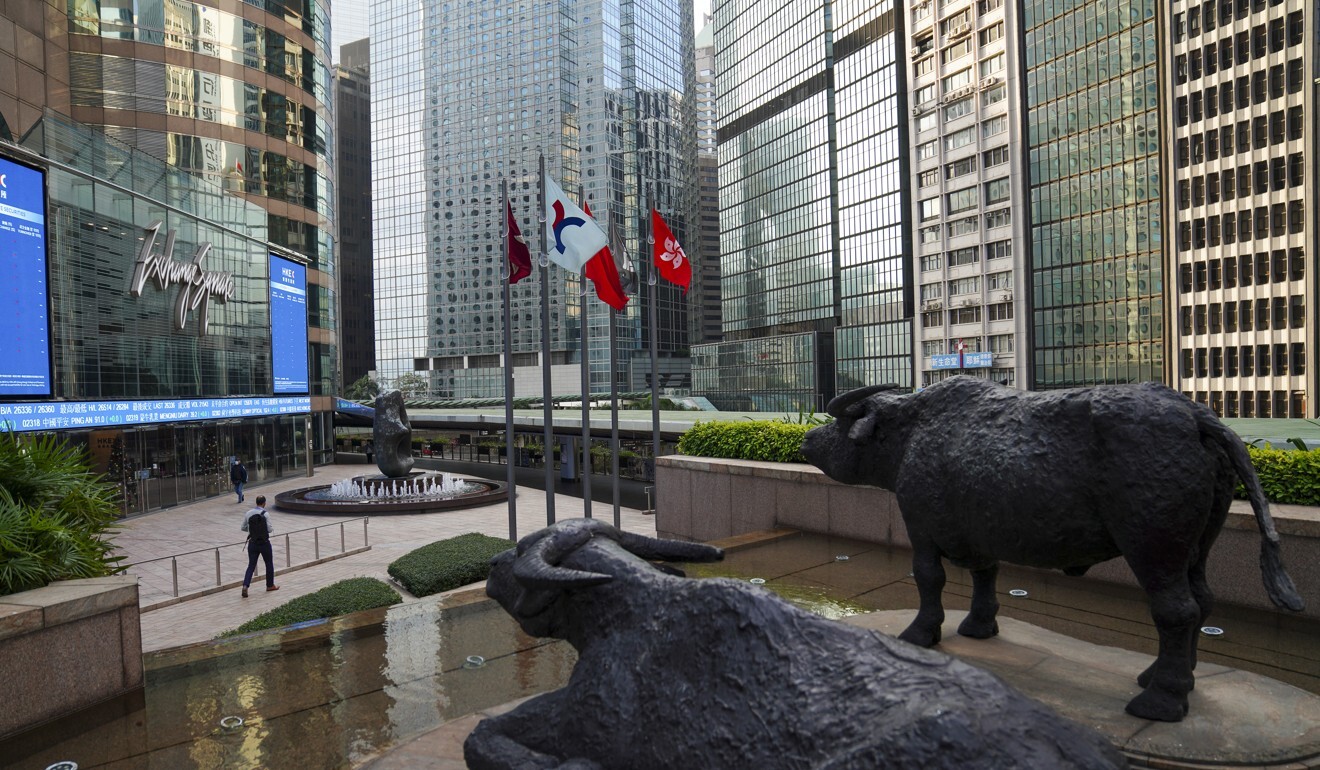
Wall Street banks to delist derivative products linked to China Telecom, China Mobile and China Unicom in Hong Kong to comply with US sanctions
- The delisted derivatives represent about 4 per cent of over 12,000 derivative products in Hong Kong
- New York Stock Exchange will delist China Telecom, China Mobile and China Unicom to comply with an executive order
Goldman Sachs, Morgan Stanley and JPMorgan said they would delist 484 warrants and other derivative products linked to China Telecom, China Mobile and China Unicom stocks in Hong Kong later this month to comply with US sanctions on the three mainland telecom companies.
The delistings are unlikely to disrupt markets as they represent only about 4 per cent of more than 12,000 derivative products listed in Hong Kong.

The delisting of the derivatives marks the latest escalation in the spread of political tension between China and the US into capital market, after major global index compilers removed a number of US-sanctioned mainland companies from their benchmarks.
MSCI, FTSE Russell and S&P Dow Jones Indices last week said they would cut the three Chinese telecom companies from their benchmarks. Local index complier Hang Seng Indexes kept them in a wide range of its indices. Both China Mobile and China Unicom are constituent stocks of the benchmark.
On the list of derivatives to be delisted are a number of index products which contain the three telecom giants.
Citi is the only US warrant issuer so far in Hong Kong not to have taken any action on their derivative products linked to the sanctioned firms.
Goldman Sachs, Morgan Stanley and JPMorgan all have big expansion plans in China after the country opened up its markets last year.
“The international financial firms may feel some pressure to take sides for the short term,” said Christopher Cheung Wah-fung, a Hong Kong lawmaker for the financial services sector who is also chief executive of Hong Kong brokerage Christfund Securities.
“However, since Beijing welcomes the Wall Street firms to stay and invest in Hong Kong to safeguard its position as an international financial centre, it is unlikely to take any strong revenge actions against the international firms which follow the US regulation.
“Beijing will take a wait-and-see approach until the next US president, Joe Biden, unveils his China policies.”
“HKEX is working closely with the relevant issuers to ensure orderly delisting, and facilitate buyback arrangements being arranged by the issuers,” the HKEX said in a statement issued on Sunday night adding it was confident that there will be sufficient investment choices to meet market demand.
Brokers should advise clients of risks if warrants issuers execute early redemption, said Gordon Tsui, chairman of Hong Kong Securities Association.
“Since only a few percentages of warrants in Hong Kong will be affected, I don‘t think there should be significant selling pressure on Monday,” Tsui said.
In December, the average daily turnover of structured products in Hong Kong stood at HK$13.8 billion (US$1.78 billion).
The Securities and Futures Commission (SFC) reminded the investment banks to carefully assess the impact of the US sanctions on their products, according to a spokesman of the SFC in a response to the Post on Sunday.

